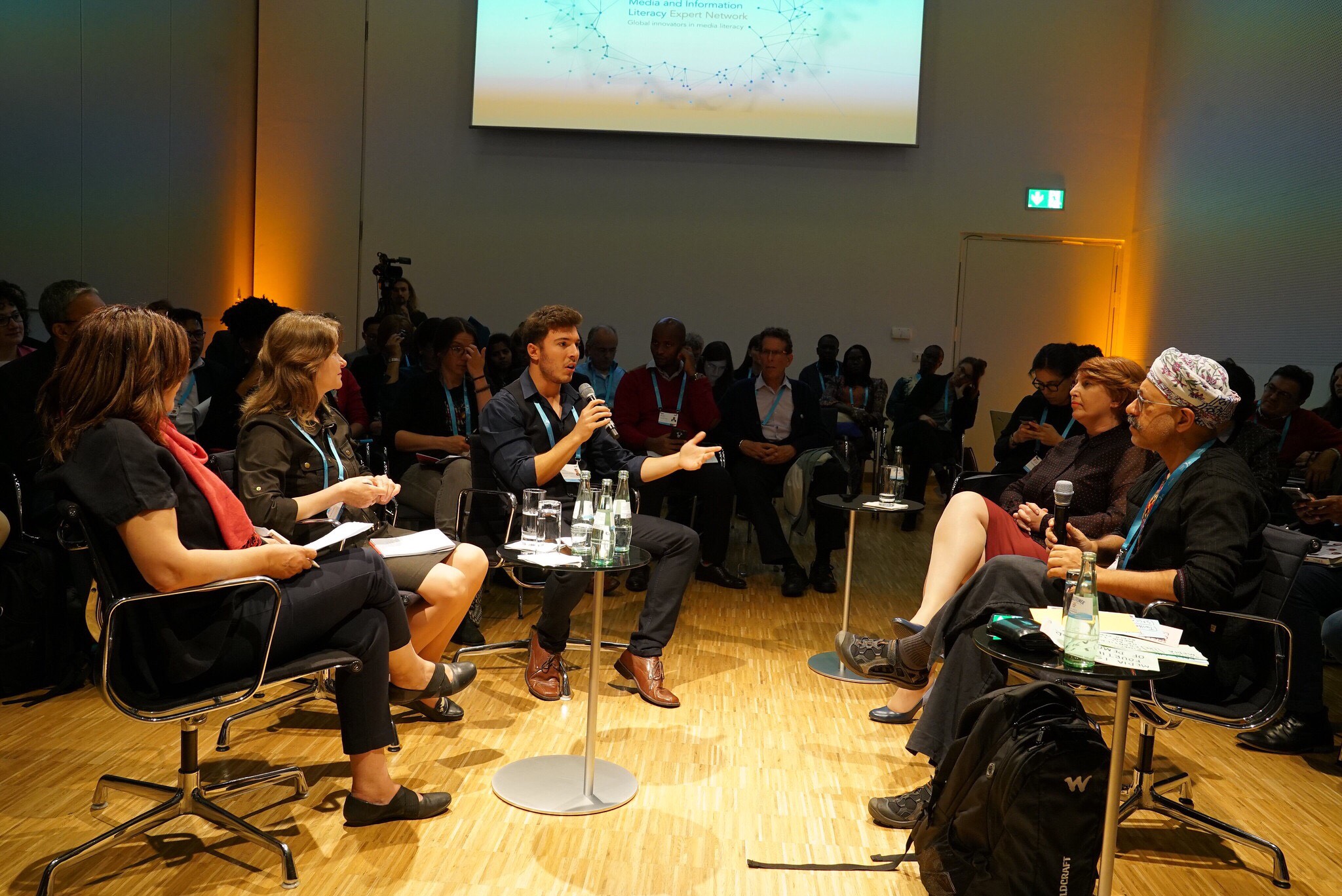
Is media, as we know today, dead? Has social media taken over traditional media? Is media without social media’s widespread reach have no choice but to embrace social media? These, among many pertaining questions surrounding the changing paradigm of critical media and newsrooms in the age of social media, were discussed at the Global Media Forum 2019 last week on June 27-28 that takes place annually in Bonn, Germany. Focusing on this topic, MILEN (Media Information Literacy Experts Network) had organised an hour long discussion with panels from India, Moldova, Georgia, Germany, Brazil, and Arab Countries.
Osama Manzar, founder and director of Digital Empowerment Foundation is a member of MILEN and was also part of the panel and moderated the discussion.
“Social Media first killed Internet, then it killed Media and is now killing democracy,” a bold statement made by Manzar during the discussion, where he argued how there is an evident rise of the alternative media that is “certainly manufacturing unit of information” and hence influencing critical thinking.
“With an increased penetration of smartphones, for a vast majority in India, WhatsApp or other social media platforms are the source for all kinds of information, including critical news,” he said. Emphasizing on growing public distrust on traditional media and information toxicity in the age of social media, he said that people now create and consume information that sides with their version of truth, hence creating a complete information chaos.
In an hour-long discussion, the speakers highlighted that social media is ending up creating confusion among consumers and citizens besides creating polarised society. It was also highlighted that misinformation and fake news and the use of social media has resulted in a situation where there is no right or wrong.
The panel further discussed various cases of how social media has been at the frontier of being mass media and has become de-facto reach-out medium and outlet for all media of all format including, print, electronic, radio and alternative media.
It discussed individual cases of how the traditional media is affected by social media in their countries and region. “This is a critical question and to answer this we first need to imagine our world without social media,” said Media Development Foundation’s Tamar Kintsurashvili. Citing examples from Arab countries where traditional media remains largely regulated by the state governments, she argued that it would also mean “Having only one voice i.e., the government’s.”
“Social media in that part of the world that provides an alternative space for free voices.”
Watch the full discussion here.
(Starts at 8:50 mins)








